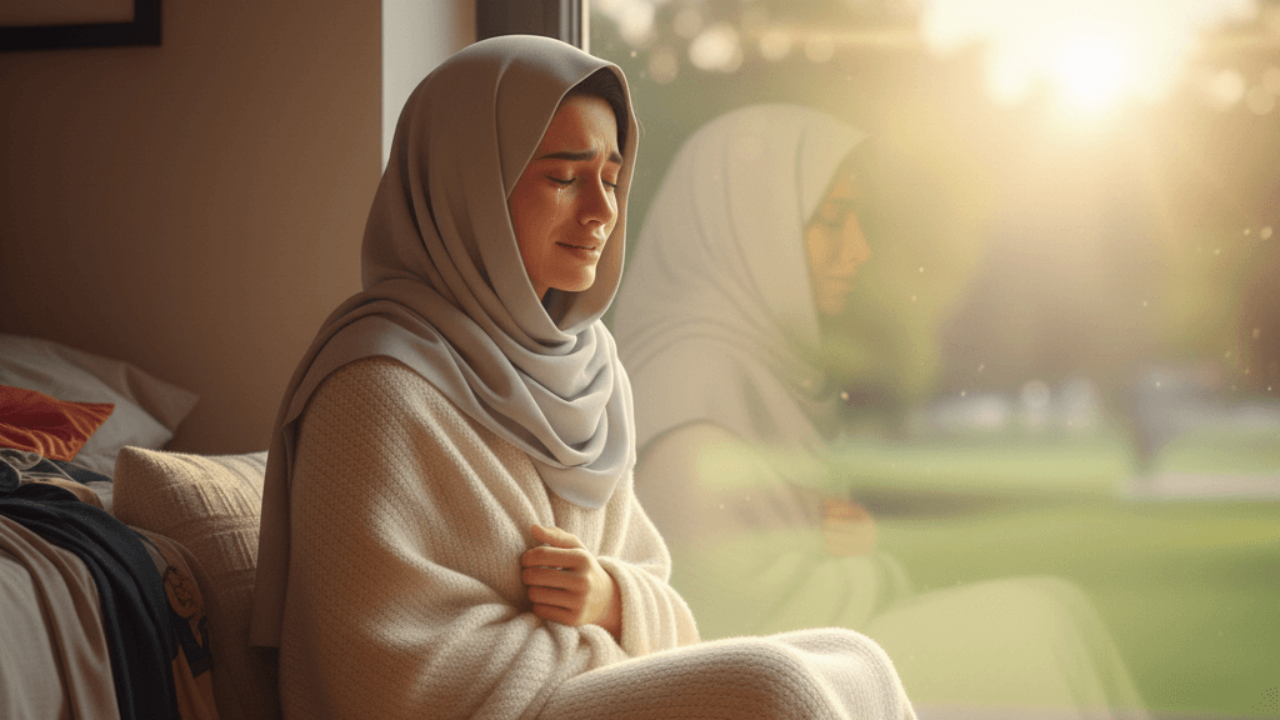Why We Feel Better After Crying: The Science And Sunnah
Oct 02, 2025
"Don't cry!" "Be strong!" "Have sabr!"
Have you ever heard someone say words like this to someone who is crying or on the verge of tears?
These are cultural ideas which are not based on the Sunnah of the Prophet (pbuh). How do we know that? Because the Prophet (pbuh) cried regularly in private and in public. He was the strongest of people and closest to Allah.
Therefore, crying does not mean you are weak. It does not mean your iman is low or your sabr has failed. In Islam and in science, tears are a mercy — a way designed by Allah to release pressure, calm the body and begin to heal.
Why Crying Is Not A Spiritual Failure
In many communities, tears are shamed or silenced. But tears are a natural way of expressing the deep sadness associated with the medical illness called depression. Tears are not a sign of weak iman. Confusing the two leads to unhealthy repression rather than release — and often worsens pain.
What The Sunnah Shows Us About Crying
The Prophet ﷺ wept. Upon the death of his baby son, he taught us that the eyes may shed tears and the heart may grieve while the tongue still says what pleases Allah:
"The eyes shed tears and the heart is grieved, but we will not say except what pleases our Lord. O Ibrahim ! Indeed we are grieved by your separation." (Al-Bukhari)
This is sabr: allowing yourself to feel your sadness while choosing good words and actions. The Quran also shows that deep, prolonged sorrow, such as what Prophet Yaqub (as) felt for Yusuf (as), does not cancel iman or self-worth. Yaqub (as) cried for decades over the loss of his son Yusuf (as). Allah tells us about his anguish in the Quran, not to fill space, but because He wants us to know this:
Your feelings are valid and acknowledged; your tears are permitted.
The Science Of Tears
Research offers clear evidence of how crying supports emotional health:
-
Calming the nervous system. After crying, the body tends to move from a “fight/flight” state, into the parasympathetic “rest-and-digest” state. A study from Tilburg University, Netherlands (2014), found calmer breathing and heart rate after crying, showing how the body self-soothes back into balance.
-
Natural pain relief. Crying triggers endorphins (natural painkillers) and oxytocin (the “bonding” hormone). Research from the University of Pittsburg, USA (2014), showed that crying activates these chemicals, which ease both physical and emotional pain.
-
Stress detox. Emotional tears are chemically different from reflex tears. They carry stress hormones such as cortisol and excess manganese, which is linked to anxiety and low mood. Studies led by Dr. William Frey at the St. Paul–Ramsey Medical Center, USA (1981), showed that crying helps flush stress-related chemicals from the body.
-
Mood recovery. A 2011 study published in the Journal of Research in Personality found that although people may feel tired immediately after crying, within 90 minutes many reported improved mood, more relaxation and clearer thinking.
Let Yourself Cry
When you have a little strength:
-
Sit somewhere private and safe.
-
Think of one thing you haven’t allowed yourself to cry about.
-
Let yourself cry about it for a short while. No words, no fixing — just allow.
Sabr Is Not Suppression
Sabr in Islam is active: trusting Allah, guarding the tongue from sin and taking wise steps to get better. Suppression is different: pushing feelings down, which harms us. Allah calls us to the first, not the second.
When To Seek More Help
If sadness is stopping you from functioning most days for two weeks or more, or if you’re having thoughts of self-harm or wishing you were dead, urgently speak to your GP (family doctor). Seeking help is the way of the Prophet (pbuh) because it's honouring the health that Allah has given us.
My Dua For You
O Allah, soothe my sister's pain and let her tears be a mercy and relief from You. Ameen.

